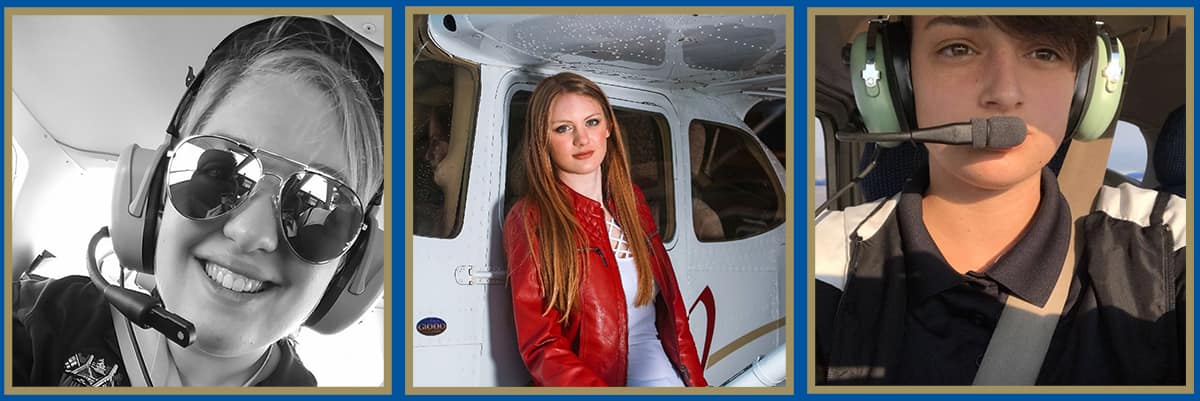Embry-Riddle President Calls for Innovative Solutions to Increase the Ranks of Women in Aviation, STEM

Increasing the ranks and stature of women across the aviation industry as well as all science, technology, engineering and mathematics (STEM) fields should be considered an urgent top priority requiring innovative solutions, including university initiatives with industry and private collaborators, Embry-Riddle Aeronautical University President P. Barry Butler wrote Oct. 23 in Aviation Week & Space Technology.
Today’s aviation industry leaders and STEM educators clearly recognize the need to recruit and retain more female aviation executives, pilots and aircraft maintenance professionals, Butler said, but finding effective solutions to the problem will require a sharper focus. “Equal representation is so much more than a goal,” he wrote. “If we are to sustain and grow the economic vitality and innovation of the industry we serve, it is nonnegotiable.”
Butler’s complete Aviation Week & Space Technology opinion essay is available online (requires free registration).
The search for solutions could be informed by lessons learned in other fields that have managed to widen the talent pipeline, Butler said: While professional programs such as law, medicine, pharmacy and dentistry have made great strides toward achieving equal gender representation, only 4.4 percent of airline pilots are women.
Access to education and licensing needed for success has helped women break into many traditionally male fields, he added, yet the first female pilots for U.S. passenger airlines – Emily Howell Warner and Bonnie Tiburzi Caputo – were not hired until 1973.
In aviation and STEM, Butler said, “Progress has been slow and inconsistent … The word `professional’ remained synonymous with men for decades, but that changed in other industries. It’s time for it to change in our industry, too. We don’t have 50 years to catch up.”
Noting that Embry-Riddle’s strategic plan emphasizes the need to get young women excited about careers in aviation and STEM, Butler said that progress “is not a solo act” and will require the support of industry as well as of private collaborators and supporters.
With support from an alumna donation, for example, Embry-Riddle recently ramped up its outreach efforts, launching a program that pairs paid student mentors and alumnae with incoming female Aeronautical Science students who are training to become pilots. In addition, Boeing, Southwest Airlines and FedEx support Embry-Riddle scholarship programs intended to help attract and educate more women and other students from underrepresented groups.
“Embry-Riddle is making such investments because our industry cannot thrive or innovate if almost half the population is not at the table,” Butler wrote. “More scholarships are needed, as are more networking and internship opportunities, especially at the K-12 level. In addition, despite the amazing programs that exist to get more girls into airplanes for a first ride, we have not yet, as a sector, figured out how to keep them in our pipeline when those aircraft land.”
 Ginger Pinholster
Ginger Pinholster